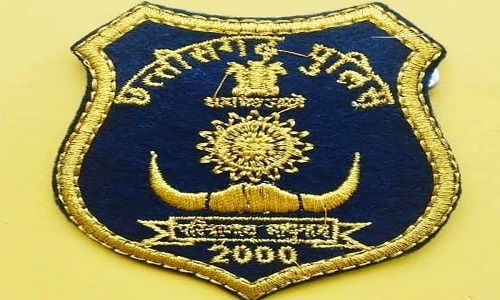State Govt zeroing in on officer for Acting DGP post
| Date :10-Jan-2024 |

By Mukesh S Singh
RAIPUR,
THE Chhattisgarh Government is looking at a galaxy of five-six top-ranking police officers from whom to choose the State’s Director General of Police (DGP). Through a thicket of rules and norms -- mostly guided by the Supreme Court -- Chief Minister Vishnu Deo Sai is trying to make up his mind to zero in on one name without offending anybody and the system. As per the talk in the corridors of power, five to six names are doing rounds for the DGP post which will be confirmed by the Departmental Promotions Committee (DPC) meeting. The top names being talked about for the top post include 1992-batch Indian Police Service (IPS) officer Arun Dev Gautam and his batchmate Pawan Deo. Gautam is serving as Additional Director General (ADG) Home Guards and Secretary Home, whereas Deo, also of ADG rank, is currently posted as Chairman-cum-Managing Director, Police Housing Corporation. Meanwhile, according to sources, Swagat Das, a 1987-batch IPS, who is presently on Central Deputation as Special Secretary (Internal Security) in Ministry of Home Affairs (MHA), is the senior most IPS officer of Chhattisgarh cadre as per the IPS civil list. Das is followed by 1990-batch IPS officer, Rajesh Mishra, who has only 22 days left for retirement. Das has more than 10 months for retirement.
Moreover, two other senior most officers, including 1995-batch IPS Himanshu Gupta and 1994-batch IPS S R P Kalluri, are also due for their promotion to DG rank this month. However, the two officers also have to wait for their elevation to the next level till the DPC meeting is chaired to this effect. “The State’s top political leadership are in unison for Arun Deo Gautam’s candidature as next DGP of Chhattisgarh,” knowledgeable sources in the new Government averred to ‘The Hitavada’, requesting anonymity. However, appointing Gautam as Acting DGP will be purely ‘ad-interim’ measure till a regular arrangement of appointing him as ‘full-time’ DGP is made. “This official limitation for Chhattisgarh comes in the wake of slew of directions from Supreme Court on police reforms in the country, wherein it had restrained all the States and Union Territories from appointing any police officer as ‘Acting DGP’ to avoid favouritism and nepotism,” the sources said. The apex court’s direction had come on an application filed earlier by the Centre in which it claimed that certain States had been appointing acting DGPs and then making them permanent just before the date of their superannuation to enable them get the benefit of an additional two-year tenure till the age of 62 years. However, the top court also held that unless there was a minimum tenure of six months left, a DG ranked officer cannot be made fulltime DGP.
Sources pointed out that once Gautam attains DG rank, the State Government will follow suit of previous Congress regime for DGP’s appointment. “The Congress Government led by Bhupesh Baghel on December 19, 2018 had replaced 1985-batch IPS officer A N Upadhyay with D M Awasthi, 1986-batch IPS, by making latter as acting police chief of the State and later appointed him as ‘full-time’ DGP. Similarly, on November 11, 2021, 1989-batch IPS officer Ashok Juneja was made acting DGP and sometime later made the full-time DGP. The appointment of Juneja was marred by some controversy since entrustment of additional charge of Acting DGP superseded four other seniors including Swagat Das, Sanjay Pillay, Rajinder Kumar Vij and Ravi Sinha. At that time, Juneja held post of SDG Anti Naxal Ops/Special Intelligence Branch (SIB), with additional charge of Chhattisgarh Armed Force (CAF) and Special Task Force (SFT),” the sources added. Sources also pointed out that there are technical complications in the selection of DGP (Apex Scale officer Rs 2,25,000). “If an officer senior to the Acting DGP appointed by the State Government is in the panel and service is more than 6 months, then UPSC can recommend that officer’s name for appointment, which will be binding for the State,” the sources maintained.
